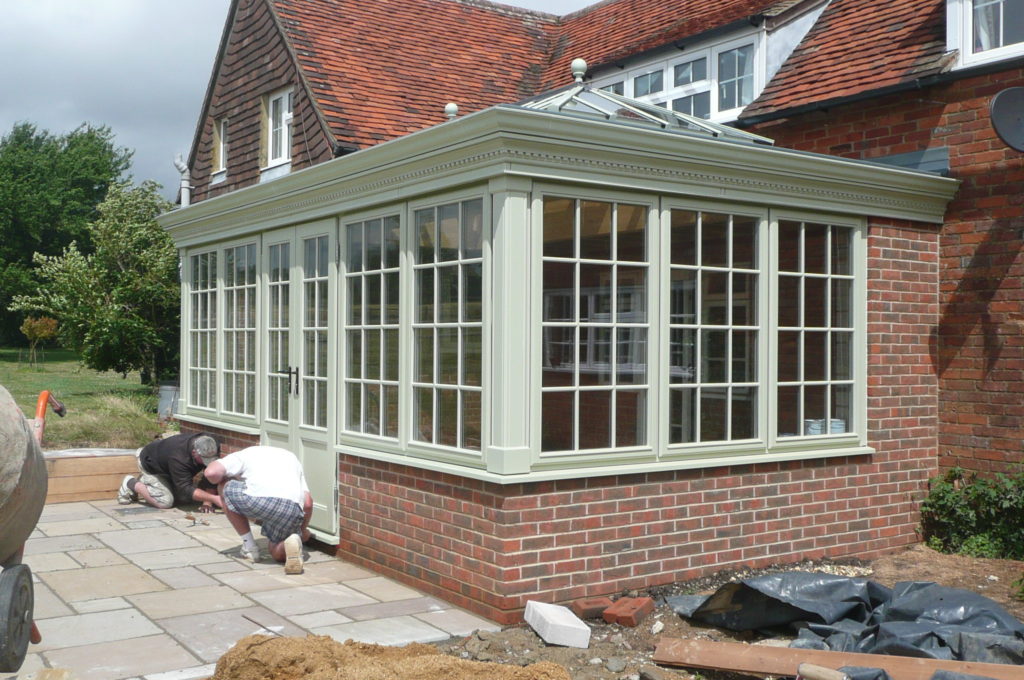Orangery or Extension: A Complete Comparison Guide for Your Home
When it comes to expanding your living space, the decision between choosing an orangery or extension can feel overwhelming. Both options offer unique benefits and potential challenges, making it essential to understand the key differences before making this significant investment in your home.
As specialists in bespoke glazed structures, we’ve helped countless homeowners navigate this important choice. This comprehensive guide will explore everything you need to know about orangeries and traditional extensions, helping you make an informed decision that perfectly suits your property and lifestyle needs.
Key Differences Between Orangeries and Extensions
While both orangeries and extensions add valuable space to your home, they have distinct characteristics that set them apart.
Architectural Design
Orangeries feature a combination of solid walls and glazed elements, typically with a lantern roof and decorative pillars. Extensions, on the other hand are usually constructed with predominantly solid walls and a conventional roof, matching the existing house.
Light and Ambience
Orangeries provide abundant natural light through strategic glazing while still maintaining privacy. Extensions offer more controlled lighting through traditional windows and doors.
Cost Considerations
The cost of both an orangery and a traditional brick-built extension can vary greatly depending on various factors. Premium materials and bespoke designs may increase costs. Higher specification glazing adds to the initial investment while the size and complexity of the project will greatly impact the price.
Have a read of our orangery costs page for more detailed information about the potential costs involved.
Planning Permission and Building Regulations
Both structures typically require compliance with building regulations, but planning requirements can differ. Orangery installations often fall under permitted development and are less likely to require full planning permission.
Extensions often require full planning permission and face stricter regulations regarding size and position. Both orangeries and extensions, however, must comply with industry glazing and thermal regulations and meet current building regulations.
Practical Considerations

Construction Timeline
Understanding the build time for each option is essential for project planning. As a general guide, orangeries typically 6-8 weeks to complete. Extension can take between 10-12 weeks or longer depending on various factors including the complexity, size, and location of the installation.
Usage and Versatility
Consider how you’ll use the new space to optimise your standard of living. Orangeries are ideal for dining rooms, living spaces, or garden rooms. Extensions are more suited to kitchens, bedrooms, or multi-purpose rooms.
Energy Efficiency and Comfort
Temperature Control
Both structures offer different thermal properties. Orangeries fitted with modern glazing technology provide excellent thermal efficiency. Solar control glass helps prevent overheating while underfloor heating often works well with glazed structures.
Extensions incorporate traditional insulation methods that offer consistent temperature control. They are less affected by seasonal temperature variations and have more options for conventional heating systems.
Design and Aesthetics
Style Integration
Each option offers unique aesthetic benefits. Some attractive orangery features include:
- Elegant lantern roofs to create architectural interest
- Blend of traditional and contemporary design elements
- Creates a seamless connection with the garden
- Offers more design flexibility with glazing options
Extension features, on the other hand, tend to include:
- Can perfectly match existing building materials
- More traditional appearance
- Greater privacy options
- Flexibility with internal layout design
Maintenance Requirements

Understanding ongoing maintenance needs is an important part of making the best decision for your home extension plans. Maintaining an orangery involves:
- Regular cleaning of glazed elements
- Periodic checks of drainage systems
- UV-resistant treatments may need renewal
- Generally lower structural maintenance
Common extension maintenance tasks include:
- Traditional roof maintenance
- Regular checks for damp issues
- Periodic repainting or repointing
- Standard building maintenance
Environmental Impact
Consider the environmental aspects of each option. With an orangery, environmental benefits include:
- Natural light reduces artificial lighting needs
- Modern glazing provides excellent insulation
- Can incorporate solar control features
- Often requires fewer raw materials
Extension environmental considerations include:
- Traditional building materials may have higher carbon footprint
- Solid construction provides good thermal mass
- Can incorporate eco-friendly materials
- Opportunity for green roof installation
Making Your Final Decision
To help make your final choice between an orangery or extension, consider these key questions:
- What is your primary use for the new space?
- How important is natural light in your daily living?
- What is your budget for both initial cost and ongoing maintenance?
- How important is energy efficiency to you?
- What style would best complement your existing property?
Conclusion
Both orangeries and extensions offer excellent ways to expand your living space, each with their own unique benefits. The right choice depends on your specific needs, budget, and property characteristics. Whether you opt for the light-filled elegance of an orangery or the solid practicality of an extension, careful consideration of the factors we’ve discussed will help ensure you make the best decision for your home.
For expert advice on your specific project, feel free to contact our team. You can call us on 0333 335 5051 or send us a message online and we’ll get back to you as soon as possible.